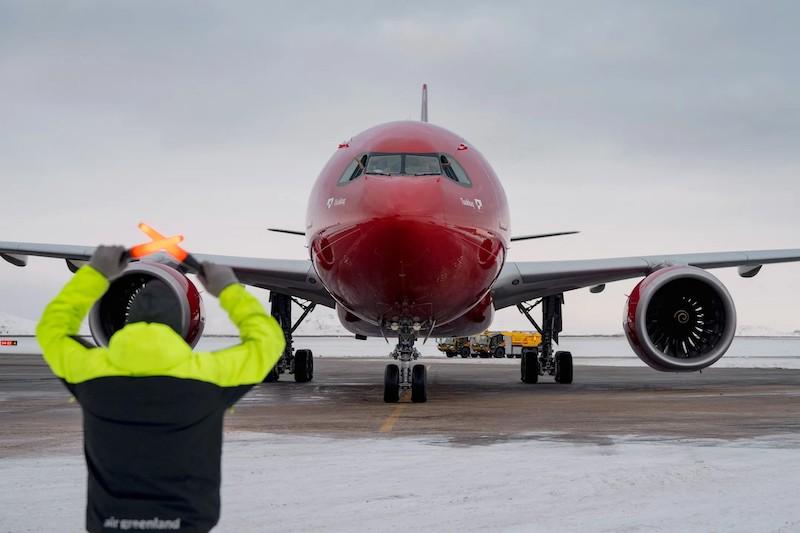Air Greenland Eyes Growth Amid Growing Global Interest In Island’s Future

Greenland’s aviation industry is entering a “transformative” period as Air Greenland seeks to expand its international network following the opening of Nuuk International Airport (GOH).
The airport’s new terminal and 2,200-m (7,218-ft.) runway mark a significant shift from the limitations of Kangerlussuaq, a former U.S. military base that had long served as Greenland’s primary international gateway.
“This is a game changer,” Air Greenland CEO Jacob Nitter Sørensen said during an interview on Aviation Week’s Window Seat podcast. “Before, we had to fly our Airbus A330 into Kangerlussuaq and then distribute passengers on smaller commuter aircraft from there. With the new airport, a big percentage of the passengers can now go directly to their final destination.”
Currently, Copenhagen and Reykjavik, Iceland, remain Air Greenland’s most important international destinations, but Sørensen outlined plans to expand into other European markets. “London and Germany are target destinations,” he said. “There are still some constraints, but the main constraint of airport capacity has been removed.”
Air Greenland operates a fleet of eight De Havilland Canada Dash 8s, one A330-800 aircraft and 18 helicopters. Sørensen said the carrier is preparing for fleet upgrades to support its expansion goals and intends to introduce an A320neo in 2026 to strengthen its international operations.
Greenland’s tourism potential is also set to grow further with the introduction of new international services. United Airlines will launch nonstop flights between its New York Newark Liberty International Airport hub and Nuuk starting June 15, operating twice weekly using Boeing 737-8s. Scandinavian Airlines (SAS) will follow on June 25 with seasonal service between Copenhagen and Nuuk, flying three times weekly with A320neos until late August.
These new connections underscore Greenland’s growing profile as a tourism destination, but Sørensen emphasized the need for further infrastructure development to accommodate increasing visitor numbers. “On-the-ground infrastructure, including hotels and tourism services, needs to expand,” he said. However, Sørensen stressed that this growth must be managed sustainably to ensure Greenland’s environment and small communities are protected.
The anticipated tourism growth comes amid heightened global attention on Greenland, fueled by U.S. President Donald Trump’s renewed interest in acquiring the island—an autonomous territory of Denmark—since his reelection in November. Trump has suggested he may use economic or military influence to persuade Denmark to relinquish control.
While Denmark's Prime Minister Mette Frederiksen has reiterated that the island’s future lies in the hands of its people, the renewed focus has elevated the territory’s visibility on the global stage. “More people know about Greenland and are interested in Greenland now than they were two weeks ago—that must be a positive,” Sørensen said. He added that while many in the country were anxious about Trump’s motives, the increased attention could benefit Greenland’s tourism sector.
The full interview with Air Greenland CEO Jacob Nitter Sørensen will be available on Aviation Week’s Window Seat podcast from Jan. 23.





